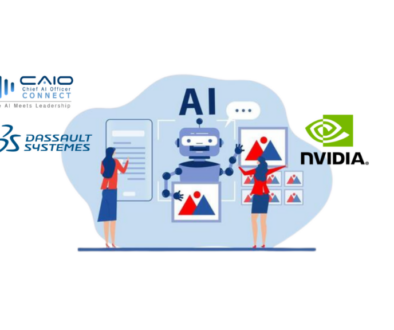OpenAI, one of the leading names in artificial intelligence research, is reportedly in discussions with SoftBank for a substantial investment deal. As OpenAI continues to expand its influence and capabilities, a partnership with a financial powerhouse like SoftBank could open new avenues for growth and innovation. This blog explores the potential implications of this investment and how it aligns with OpenAI’s broader strategic goals.
What’s on the Table?
According to reports, OpenAI and SoftBank are discussing a significant investment, which could involve debt financing or equity participation. While specific details are yet to be disclosed, the talks suggest a mutual interest in leveraging their respective strengths:
- OpenAI’s Technological Expertise: As a leader in generative AI, OpenAI has established itself through groundbreaking models like GPT-4 and DALL·E. A fresh injection of capital could accelerate research and development across various domains.
- SoftBank’s Financial Clout: Known for its Vision Fund, SoftBank has a history of investing in transformative technologies. Its backing could provide OpenAI with the financial resources needed to expand its operations and explore new markets.
Why SoftBank is Interested
SoftBank’s interest in OpenAI is likely driven by several strategic motivations:
- AI Dominance: Investing in a major AI player like OpenAI would strengthen SoftBank’s position in the rapidly evolving AI landscape.
- Diverse Portfolio: SoftBank has invested heavily in robotics, telecommunications, and other cutting-edge technologies. Partnering with OpenAI aligns well with its broader investment thesis.
- Future Profitability: As AI continues to gain traction across various industries, SoftBank’s investment could yield substantial returns if OpenAI achieves its ambitious goals.
OpenAI’s Perspective
For OpenAI, SoftBank’s potential investment presents numerous benefits:
- Increased Funding: Additional capital would enable OpenAI to scale its research efforts and enhance its technological infrastructure.
- Strategic Partnerships: Collaborating with SoftBank could provide access to new markets and industrial applications for its AI models.
- Expanded Research Capabilities: With more resources at its disposal, OpenAI could accelerate the development of new models and tools aimed at solving complex problems.
Potential Challenges
Despite the potential benefits, there are also challenges that OpenAI must consider:
- Maintaining Independence: As OpenAI continues to grow, preserving its nonprofit goals and ethical standards will be crucial. Aligning with a major investor like SoftBank may introduce conflicting priorities.
- Debt Implications: If the deal involves debt financing, OpenAI must ensure it can meet repayment obligations without compromising its research objectives.
- Regulatory Scrutiny: As AI technologies attract greater attention from regulators, partnerships with large financial entities could face increased scrutiny.
What This Means for the AI Industry
A strategic partnership between OpenAI and SoftBank could have broader implications for the AI industry:
- Increased Competition: Rivals like Google DeepMind and Microsoft may feel pressured to accelerate their own research and investment efforts.
- Funding Trends: A successful partnership could attract more investors to the AI space, driving further advancements in machine learning and other related technologies.
- Ethics and Governance: As OpenAI expands its capabilities, ensuring responsible development and deployment of AI systems will remain a priority.
The potential investment from SoftBank could mark a transformative moment for OpenAI. By providing much-needed resources to accelerate research and development, the partnership could pave the way for new breakthroughs in artificial intelligence. However, balancing commercial interests with ethical considerations will be critical as OpenAI navigates this new chapter.



